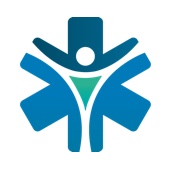Monoclonal antibody treatments could reduce COVID-19 hospitalizations

The FDA authorized the first monoclonal antibody treatment for COVID-19 on November 9. The agency authorized the use for patients with mild to moderate COVID-19 who are not hospitalized. Bamlanivimab is the name of this treatment from Eli Lilly.
The FDA authorized another monoclonal antibody therapy about 2 weeks later from Regeneron called REGEN-COV2. It is also intended for patients with mild to moderate COVID-19. Clinicians must administer the therapy within 10 days of symptoms. This window of time can quickly fade with the current challenges facing hospitals and their healthcare workers.
“Antibody therapies always work best the earliest they’re given,” Arturo Casadevall, an immunologist at Johns Hopkins Bloomberg School of Public Health, was quoted saying. “This has been known for 130 years.”
Besides, doctors might hesitate given the recent nature of the treatment.
“For better or worse, some people might be more willing to pull that trigger and others might want to hold back because they’re still waiting for that perfect dataset to come out that shows exactly the risk and the benefit,” Rodney Rohde, chair of the Texas State University clinical laboratory science program.
Clinicians this past month had only applied approximately 5% to 20% of their monoclonal antibody supply, that is around 65,000 doses per week on average.
The FDA has authorized few treatments for COVID-19. For example, convalescent plasma, applies the blood of sick patients who’ve recovered, to other patients in order for their antibodies to aid in the combat against the virus.
Monoclonal antibodies operate in a similar fashion. However, the therapy is meant to strike at particular coronavirus proteins. Regeneron’s treatment focuses on the spike protein, which causes so much trouble for patients.
“You can kind of think of them as smart bombs,” Rohde said. “They’re actually probably better than convalescent plasma, because sometimes you don’t know the amount [of antibodies] you’re getting and how strong they actually bind.”
Monoclonal antibodies can help patients if there is no delay in the administration of the therapy to patients.
Data from a clinical trial using bamlanivimab showed that only 3% of the 465 non-hospitalized COVID-19 patients with mild to moderate symptoms, became inpatients in the hospital, versus 10% who received placebo. Regeneron’s treatment revealed similar results.
Hence monoclonal antibodies could lower the hospitalizations by as much as 70%. Nevertheless, people who need hospitalization because of more severe illness would need other treatments.
Our Editorial Note: We have summarized an article that first appeared in Business Insider. You would need a subscription to read the content in its entirety. Contact us if you would like to learn more about regenerative medicine and how it may help patients with Covid-19.
MedAdvisor
info@medadvisor.co
